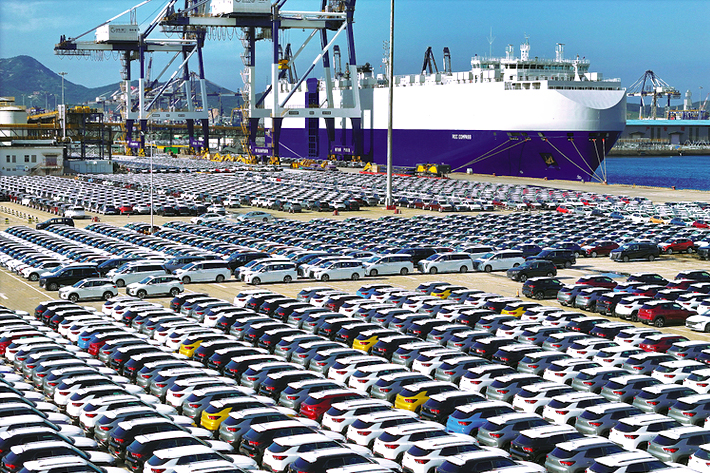For the first time last year, Chinese electric vehicle companies invested more in value chains abroad than at home, underscoring their increasing challenges in the domestic market and an increased focus on foreign markets.
Chinese outbound foreign direct investment in the EV value chain soared to an annual average of $30.4 billion in 2022-2024 from $8.5 billion in 2018-2021, according to data compiled by US think tank Rhodium Group.
Meanwhile, the value of Chinese domestic investment in the EV value chain plummeted from $94 billion in 2022 – a peak – to just $15 billion last year, the data showed.
Also on AF: China’s Manufacturing Slump Drags on Amid US Trade Uncertainty
“In 2024, EV investment by Chinese companies was greater overseas than domestically for the first time, a historic reorientation of capital as companies seek profitability outside of a domestic market facing ‘involution’,” the report said.
Chinese automakers benefited from years of subsidies and other government policies aimed at making the country a global automotive power and the world’s leader in electric vehicles.
But Beijing’s misplaced implementation of those policies fuelled huge overcapacity and spiralling price wars that are now seriously undermining carmakers‘ finances.
According to data from LSEG covering 33 listed automakers headquartered in China, the sector’s median net profit margin fell to just 0.83% in 2024 from 2.7% in 2019.
Meanwhile, fears of a flood of cheap Chinese cars have sparked trade tensions with key partners — strain that China’s export-driven economy cannot afford amid US President Donald Trump’s tariffs. Rhodium Group’s data signals Chinese carmakers are seeing greater foreign investment as a potential solution.
New foreign plants
BYD is building an EV factory in southern Hungary that should start production by the end of 2025, as well as a separate facility in Turkey due to come online in 2026.
The carmaker has forecast exports will make up about 20% of its global sales this year helped by new model launches. It said this week it was aiming for 800,000 to 1 million deliveries outside mainland China in 2025, compared with projected total sales of 4.6 million units.
Meanwhile, other carmakers such as Geely have plans for a new plant in Vietnam, and Chery and Great Wall Motors are expanding in Russia and across Latin America. Others are also looking to invest in Southeast Asia and India.
The Rhodium Group report said EV tariffs from the European Union, the US, Canada, Turkey, Brazil and other economies have forced Chinese automakers to focus investments on Asia, the Middle East and Africa. They attracted 33% and 25% of new investment, respectively, the report said.
Some of those investment avenues may soon be squeezed, too, however. Reports say that a China-Gulf free trade deal has stalled over concerns in Saudi Arabia that cheap Chinese imports could derail the kingdom’s push to become an industrial powerhouse.
Systemic issue
Problems from overcapacity and excess production have weighed on the Chinese economy too, as they deepen deflationary pressures.
Chinese leaders have promised to end aggressive price cuts by firms across multiple industries, also including solar panels, lithium batteries, plus the steel, cement and food delivery sectors.
But policymakers have yet to announce a clear-cut plan.
Officials appear to be quietly supporting a solar industry plan to form a polysilicon cartel, buying out and shutting down the least efficient producers of the key solar cell ingredient, while other sectors seem to have resorted to giving their staff a stern lecture on the importance of profitability.
- Reuters, with additional editing by Vishakha Saxena
Also read:
China Is Full Of New Car Graveyards
Beijing Says it Will Rein in EV Sector’s ‘Irrational’ Competition
Local Officials in China Backed Export of ‘Zero-Mileage Used Cars’
China’s Top Paper Seeks End to Sale of ‘Zero-Mileage Used Cars’
China Plays Rare Earths Card in EV Tariff Negotiations With EU
Cargo Ship Carrying 3,000 Cars Ablaze Off Alaska, EV Fire Blamed
China Carmakers Told to Explain Sales of ‘Zero-Mileage Used Cars’
China’s Intense EV Price War Taking a Toll on Car Dealers
BYD’s Big Gains Give Chinese EV Rivals a Giant Headache
























